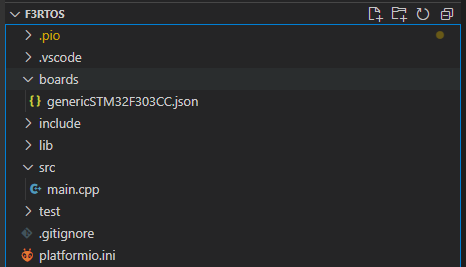Hello everyone,
I’m using an STM32F303CCT6 to control a TMC5160, a W5500 and some other stuffs. I’m using the STM32Duino FreeRTOS lib with the Arduino frameworks. Everything is working fine except the clock system … The max CPU frequency achievable is 72 MHz. I have a 32 MHz HSE on my board (homemade), I have generated my SystemClockConfig function with STM32CubeMX.
void SystemClock_Config(void)
{
RCC_OscInitTypeDef RCC_OscInitStruct = {0};
RCC_ClkInitTypeDef RCC_ClkInitStruct = {0};
RCC_PeriphCLKInitTypeDef PeriphClkInit = {0};
/** Initializes the RCC Oscillators according to the specified parameters
* in the RCC_OscInitTypeDef structure.
*/
RCC_OscInitStruct.OscillatorType = RCC_OSCILLATORTYPE_HSI|RCC_OSCILLATORTYPE_LSI
|RCC_OSCILLATORTYPE_HSE;
RCC_OscInitStruct.HSEState = RCC_HSE_ON;
RCC_OscInitStruct.HSEPredivValue = RCC_HSE_PREDIV_DIV4;
RCC_OscInitStruct.HSIState = RCC_HSI_ON;
RCC_OscInitStruct.HSICalibrationValue = RCC_HSICALIBRATION_DEFAULT;
RCC_OscInitStruct.LSIState = RCC_LSI_ON;
RCC_OscInitStruct.PLL.PLLState = RCC_PLL_ON;
RCC_OscInitStruct.PLL.PLLSource = RCC_PLLSOURCE_HSE;
RCC_OscInitStruct.PLL.PLLMUL = RCC_PLL_MUL9;
if (HAL_RCC_OscConfig(&RCC_OscInitStruct) != HAL_OK)
{
Error_Handler();
}
/** Initializes the CPU, AHB and APB buses clocks
*/
RCC_ClkInitStruct.ClockType = RCC_CLOCKTYPE_HCLK|RCC_CLOCKTYPE_SYSCLK
|RCC_CLOCKTYPE_PCLK1|RCC_CLOCKTYPE_PCLK2;
RCC_ClkInitStruct.SYSCLKSource = RCC_SYSCLKSOURCE_PLLCLK;
RCC_ClkInitStruct.AHBCLKDivider = RCC_SYSCLK_DIV1;
RCC_ClkInitStruct.APB1CLKDivider = RCC_HCLK_DIV2;
RCC_ClkInitStruct.APB2CLKDivider = RCC_HCLK_DIV1;
if (HAL_RCC_ClockConfig(&RCC_ClkInitStruct, FLASH_LATENCY_2) != HAL_OK)
{
Error_Handler();
}
PeriphClkInit.PeriphClockSelection = RCC_PERIPHCLK_USB|RCC_PERIPHCLK_USART1
|RCC_PERIPHCLK_USART2|RCC_PERIPHCLK_I2C1
|RCC_PERIPHCLK_RTC;
PeriphClkInit.Usart1ClockSelection = RCC_USART1CLKSOURCE_SYSCLK;
PeriphClkInit.Usart2ClockSelection = RCC_USART2CLKSOURCE_SYSCLK;
PeriphClkInit.I2c1ClockSelection = RCC_I2C1CLKSOURCE_HSI;
PeriphClkInit.RTCClockSelection = RCC_RTCCLKSOURCE_LSI;
PeriphClkInit.USBClockSelection = RCC_USBCLKSOURCE_PLL_DIV1_5;
if (HAL_RCCEx_PeriphCLKConfig(&PeriphClkInit) != HAL_OK)
{
Error_Handler();
}
}
If I check HSE_IN with an oscilloscope I have my 32MHz, as soon as I remove the code above, my crystal stops running as expected. I would say that my clock hardware is fine.
Now, I have just created a dummy sketch to test things:
static void vTask( void * pvParameters)
{
vTaskDelay(1);
while (true)
{
SerialUSB.println(millis());
SerialUSB.println(HAL_RCC_GetHCLKFreq()); // return 180 000 000, but should be 72 000 000 ?
vTaskDelay(1000 / portTICK_PERIOD_MS); // should be a 1 sec delay, but it is rather a 100ms one ...
}
}
void setup()
{
SystemCoreClock = 72000000; // it has the same behavior with or without this.
SystemCoreClockUpdate();
SerialUSB.begin(115200);
while (!SerialUSB);
delay(1000);
xTaskCreate(vTask, "task1", configMINIMAL_STACK_SIZE, NULL, tskIDLE_PRIORITY, NULL);
vTaskStartScheduler();
}
void loop()
{
;
}
This is the first time I’m playing with CPU clocks frequencies. I’m pretty sure I missed something in the documentation.
I tried:
- Put
board_build.f_cpu = 72000000in the platformio.ini but I read that it’s reserved for esp, isn’t it ? And it doesn’t work anyway, The task is still running 10 times a second; - Modify
system_stm32f3xx.hto writeSystemCoreClock = 72000000; - Re-write
configCPU_CLOCK_HZin mySTM32FreeRTOSConfig_extra.h; - Re-write
configTICK_RATE_HZin mySTM32FreeRTOSConfig_extra.h;
Nothing worked for now. If anyone has any idea, or documentation that I might have missed …
Thanks for your help !
